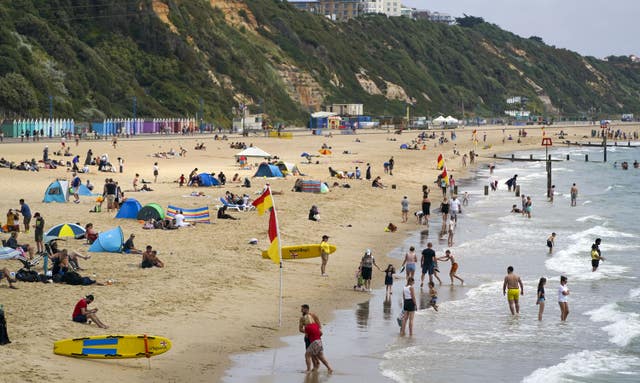Leading bookmaker Coral has slashed the odds to 6-4 (from 3-1) on the UK’s highest temperature of 40.3C being broken in August. The firm now makes its 4-5 for next month to be the hottest August on record, while they are 1-4 for there to be a hosepipe ban.
“We could be set for more record-breaking temperatures next month, as not only do we make it odds-on to be the hottest August ever, we have slashed the odds in half of the recent record temperature of 40.3C bring broken,” said Coral’s John Hill.
James Madden, forecaster for Exacta Weather, said: “Confidence is starting to build for another blast of very hot weather during the start of next month. It remains to be seen from model runs nearer the time whether temperatures will edge towards the record heat we have seen this week.
“In the meantime, there are signs of another heat surge at the weekend with temperatures, particularly across the south, lifting back into the 30Cs."
Ladbrokes is offering 10-11 from 2-1 on an August heatwave.
Spokesman Alex Apati said: "It looks like we'll be seeing more of the same on the weather front with record-breaking temperatures set to come next month."
The Met Office says temperatures could be above average, warm or even hot in parts of the UK at the start of August.
The forecast up to August 5 currently says there is 'the potential for a warm or hot spell in the south. Towards the end of the period the drier weather may extend from the south to cover much of the UK'.
There could then be more hot weather, the forecaster says, adding: "Temperatures most likely around normal or slightly above, but the potential for a hot spell in the south remains."
The 40.3C at Coningsby, Lincolnshire, on Tuesday July 19 provisionally set a new record daily maximum temperature, beating the previous figure set in Cambridge three years ago by 1.6C. The high temperatures saw the Met Office issue its lengthiest amber warning, lasting six days, followed by its first red warning for extreme heat as Brits were told to stay indoors as widespread travel disruption and wildfires broke out.
The forecaster’s Mike Kendon said: “The high temperature values were obviously exceptional but the widespread nature is also very significant and makes this recent heatwave stand above the crowd when it comes to recent heat events that have impacted the UK.”
Temperatures on July 18 and 19 topped 38C, which had only happened before in the UK on August 10 2003 and July 25 2019, according to Met Office data which uses observations stretching back to the mid-19th century.
Mr Kendon said: “Temperatures on July 18 were exceptional but they moved two to 4C higher on July 19, making this date unprecedented in the context of long-term climate records.
“What’s particularly notable is how much more widespread the heat was from this event than the previous two occurrences of temperatures in excess of 38C in the UK.

People enjoying the hot weather on Bournemouth beach after temperatures topped 40C in the UK for the first time ever (PA)
“Temperature records tend to get broken by modest amounts and by just a few stations, but the recent heat broke the national record by 1.6C and across an extensive area of the country, from Kent to North Yorkshire and from Suffolk to Warwickshire.
“Even when you factor in the temperatures seen in summer 1976, they didn’t reach anywhere near the levels seen this week, although that was a much more prolonged spell of hot and dry weather.”
Some 46 observation stations across the UK recorded temperatures above the previous UK record of 38.7C, the Met Office said.
Many long-running stations with records dating back over 100 years also posted their highest temperatures, some by margins of three to 4C.
Records were set overnight, too, when Kenley Airfield, Greater London, recorded a new highest minimum temperature of 25.8C.
Met Office chief scientist Professor Stephen Belcher said: “In a climate unaffected by human influence, climate modelling shows that it is virtually impossible for temperatures in the UK to reach 40C.
“Under a very high emissions scenario, we could see temperatures exceeding 40C as frequently as every three years by the end of the century in the UK.
“Reducing carbon emissions will help to reduce the frequency, but we will still continue to see some occurrences of temperatures exceeding 40C and the UK will need to adapt to these extreme events.”







